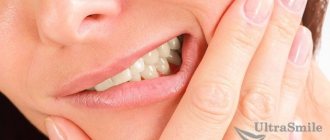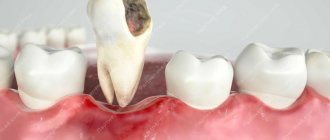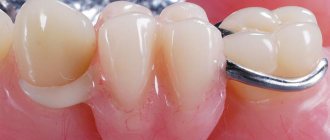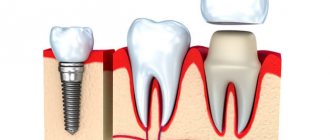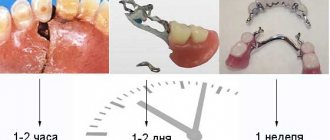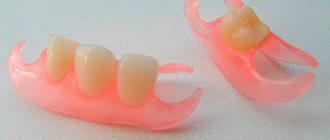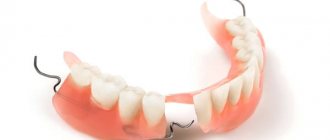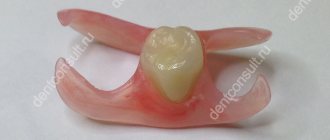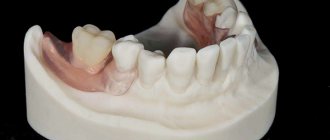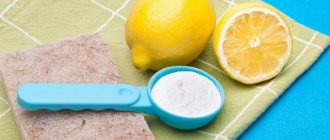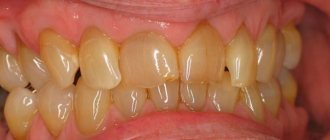It’s not always realistic to see a dentist right away, and denture adhesive comes to the rescue. With the help of this medical composition, it is possible to temporarily fix dental structures on their bases. As they are used, dental structures may become partially or completely unusable, fall off or fall apart. A number of factors underlie these problems:
- structural features of teeth;
- general state of human health;
- quality of dental structures;
- thorough treatment of the tooth and its sealing;
- care towards prostheses on the part of the user.
A beautiful smile gives you confidence and helps you connect with others. However, sooner or later, teeth begin to deteriorate. And it doesn’t matter what underlies this process - dietary errors or genetic disposition, in any case a visit to the dentist cannot be avoided. In the initial stages of carious lesions, you can get by with a filling, but over time, the diseased tooth will require the installation of a crown or prosthesis. Both are attached using a special dental glue or cement on a base, which is either the tooth itself or a pin.
How to choose
When selecting an adhesive composition for a patient, the doctor relies on his experience and takes into account the specifics of the oral cavity of a particular person. You can independently select the appropriate glue.
Three variants of compositions for fixing removable dentures are available:
- viscous;
- with average viscosity;
- liquid.
It is the consistency that determines how much fixing composition is required to securely fasten the structure. Liquid glue is characterized by greater consumption, but thanks to such products it is easy to wear at first.
The glue must be applied to the prosthesis in strips, there should be three or four of them. Once the structure is attached, the glue begins to distribute more evenly. A patient who uses a denture for the first time suffers from a distorted perception of taste.
Advice! At the very beginning of wearing a removable dental structure, avoid flavored adhesive options, as this aggravates the situation with distorted taste sensations.
Manufacturers of the formulations declare the duration of the coupling to be 24 or 12 hours, but this time does not take into account food intake and its chemical composition, laughter. For this reason, the actual duration of action of the glue is on average 9 hours.
Pharmacy creams: nuances of use
If the crown has fallen off the prosthesis, you can purchase a special cream to fix it back. Such compositions are short-lived (this is the main difference from professional products), but are ideal for temporary fixation. The price is affordable - from 100 rubles.
To fix the crown in its original place, it is important to thoroughly clean it:
- remove cement using specialized solvents:
- rinse the crown with water and dry;
- apply a thin layer of cream;
- Install the crown, paying attention to the evenness and accuracy of the position.
- Do not eat or drink for half an hour.
The method does not give a permanent result, but if you do not have the opportunity to visit a dentist, this restoration method will be useful and appropriate.
Rocks
Glue of Russian-Swiss production, secures the prosthesis in the oral cavity for 12 hours. The degree of fixation is not affected by the consumption of hot food and drinks. Contains components based on menthol and mint, so your breath will not smell bad.
Advantages:
- Can be used for wet structures;
- liquids do not wash out the composition;
- does not contain zinc;
- does not dissolve when drinking or drinking hot water;
- It is used sparingly (one tube is enough for 2 months);
- does not contain artificial colors.
Flaws:
- viscous, which makes application difficult;
- Expensive.
Advantages of the Denta-Labor team
- Many years of experience More than 20 years in the dental services market
- Modern equipment Expert class dental devices
- Denta-Labor's own training center conducts training courses for dental technicians in Moscow
- Individual approach The client’s wishes and existing orthopedic problem are taken into account
- No unnecessary additional services Completion of work according to a pre-agreed estimate
- Courier delivery We will deliver the dentures as soon as possible
Lakalut
It is a high-quality product from German manufacturers, securely fixes for the whole day.
Advantages:
- protects the oral mucosa from rubbing, thereby preventing damage to the gums;
- It has a pleasant taste and aroma, which does not in any way affect the taste sensations while eating.
Flaws:
- Expensive;
- When drinking drinks (coffee, tea) and hot food, the fastening weakens.
Instructions for use
Lacalut cream is characterized by its own application features, which allow it to be attached even to a wet removable system.
To ensure that the dentures are securely fastened and wearing is extremely comfortable, you must first:
- Remove possible food debris from the mouth by rinsing or brushing.
- In order to eliminate microparticles from deep areas, the removable structure is washed under running water, lightly blotted with a napkin, and a small layer of cream is applied.
- To evenly distribute the adhesive composition after fixing the prosthesis on the gums, the jaws are tightly clenched for a maximum of 20 seconds.
- If a lot of gel is applied and it spreads over the gums, you need to remove the excess with a paper towel or napkin.
- It is not recommended to eat within 10 minutes after installation.
- At the end of the procedure, the tube is tightly closed to prevent the cream from drying out.
The process of removing dentures must be extremely careful so that the integrity of the gums and mucous membranes of the oral cavity is not compromised.
Lakalut paste begins to weaken its adhesive properties 12-16 hours after application, as a result of which the prosthesis can be easily removed.
If difficulties arise with removal, you can leave it on at night, and you can try again only when the active substances of the drug are completely absorbed. Sometimes it takes 24 hours. Next time you should reduce the amount of gel.
The president
After application to the prosthesis, it forms a dense film, which ensures protection against the ingress of food debris. When drinking hot drinks and food, the fixation weakens. “President” contains zinc and is therefore not recommended for use by people who take dietary supplements with zinc oxide.
Advantages:
- 50 ml in a tube (other products are packaged in 40 ml);
- Excellent fixation (thanks to the composition, the prosthesis will last up to 40 hours);
- it can be used to glue the crown to the tooth;
- low price.
Flaws:
- sensitive to temperature changes (fastening quality decreases);
- has a pronounced aroma and taste.
The product manufacturer is Italian.
Why do crowns fall out?
This may be due to:
- Loss of cement elasticity, causing the crown to become uncemented.
- Damage to the prosthesis due to heavy loads when chewing or biting off hard food.
- By installing temporary cement that has not been removed.
- The beginning of the appearance of caries at the edges of the tooth.
- Frequent consumption of viscous foods - toffees, chewing sweets.
- Installing the product on a small tooth.
Whatever the reasons for the loss, this defect will not be attractive. And correctly selected glue will eliminate the disadvantage.
Fittydent
Available for sale in tubes of 20 and 40 ml. The product is not suitable for people with hypersensitive gums - burning and tingling may occur during its use.
Advice! To prevent unpleasant sensations, wait until the glue applied to the prosthesis dries a little, and only then attach it in the oral cavity.
Advantages:
- there are no traces of glue on the gums after removing the structure;
- there is no pronounced taste;
- securely fixes;
- duration of action is up to 12 hours;
- waterproof.
Flaws:
- can be applied exclusively to a dry prosthesis;
- viscous;
- Not suitable for those with sensitive gums.
What to do if it breaks in half or otherwise?
Important! Partial or complete medical products made of acrylic can be repaired with your own hands.
If a soft nylon, metal-ceramic or clasp prosthesis breaks, then its repair requires professional skills.
Self-repair of acrylic apparatus failure is possible in the following cases:
- the occurrence of a crack or fracture in the base of the structure;
- chip on the crown, loss of an artificial tooth from the base of the prosthesis.
Unprofessional intervention in the integrity of the structure can lead to a change in its shape and, as a result, problems with bite, articulation, and gum rubbing.
Protefix
The manufacturer guarantees reliable fastening of the removable denture for 12 hours. The product has medium viscosity.
The following varieties of Protefix are produced:
- With mint. It is recommended for use during the period of getting used to the prosthesis; the main component of the product is mint essential oil, thanks to which the gag reflex is reduced. When using the product, gum trophism improves and inflamed tissues calm down. The product is hypoallergenic, does not contain fragrances or dyes, which is important for people with sensitive gums and a tendency to allergic reactions.
- Extra strong. Contains fixing components in the maximum dose, so the installation of the prosthesis occurs in the shortest possible time. After the structure is placed in the oral cavity, you need to wait only 5 minutes, not 15, after which you are allowed to drink and eat.
- With aloe vera. This glue should be used by people with irritation, chafing, redness and swelling of the oral mucosa, as the product has anti-inflammatory and bactericidal properties. The use of the composition ensures the prevention of dental tissue, improves metabolism, and normalizes the process of soft tissue restoration.
The glue manufacturer is German, which is known throughout the CIS thanks to the products of the Doppel Hertz series.
The quality of the glue complies with the standards and regulations that apply in the EU and Germany. Advantages :
- is used sparingly;
- holds well;
- does not affect taste sensations;
- can be used for severe salivation;
- Can be applied to dry or wet prosthesis;
- side effects are almost completely absent;
- has no taste or pungent odor.
Flaws:
- small packaging volume;
- not very convenient dispenser;
- The tube must always be positioned vertically, otherwise the composition will leak out of it.
Advice! "Protefix" should not be used by people allergic to aspirin, as well as by those who have damage to the oral mucosa.
Contraindications
Denture adhesive is a safe product that can be used by anyone. However, there are still certain contraindications that are best familiarized with before use. You should be very careful about how much glue you apply. It should not be applied in large quantities. If you squeeze out too much glue, it will protrude from under the prosthesis. Sometimes a slight overdose of the drug may occur. It can be determined by some signs:
- severe weakness;
- increased drowsiness;
- headache;
- salivation;
- nausea;
- allergic reaction.
If one of these signs appears, it is recommended to immediately go to the clinic. To protect yourself from the occurrence of such negative signs, you must follow some rules:
- the fixation device should be used after the recommendation of a doctor;
- it should be used only as directed;
- The glue should be stored in rooms with normal levels of humidity and temperature.
The above rules are not that complicated. With their help, you can not only maintain your health, but also securely fix the design of the prosthesis.
Corega
Using Corega is very convenient, as the tube has a special tip that allows you to apply exactly the required amount of product. The composition contains petrolatum, gum, zinc, paraffin, they are safe for the human body.
There are three varieties of "Korega":
- "Refreshing taste." Available in two versions: with and without zinc. Gently fixes, has a mild mint taste, suitable for gums that need careful care.
- “Extra strong. Mint". Provides maximum adhesion thanks to the gum arabic it contains. Contains dyes that make the product pale pink, close to the shade of gum.
- "Neutral taste." Does not contain zinc or additives that affect the sense of taste. Zinc is replaced by a naturally occurring resin called gum arabic.
When using the product, reliable fastening is achieved for a maximum of 24 hours. Food does not get under the prosthesis, which reduces the likelihood of inflammatory processes in the oral mucosa.
Advantages:
- is inexpensive;
- application does not cause difficulties;
- Can be used for wet dentures.
Flaws:
- quickly washed off with water;
- with prolonged use (wearing a prosthesis), the oral mucosa may swell;
- the product is dissolved by drinks and food, which causes an increased risk of the structure falling out of the mouth and reduces the duration of use from 24 to 12 hours.
Which dentures are better?
To find the best dentures, the main evaluation criteria should be identified. Patients and doctors refer to them as:
- Load distribution. There should be no painful or uncomfortable sensations during chewing.
- Hypoallergenic. A good and high-quality prosthesis does not cause unwanted reactions in the form of irritation, itching and redness of the palate, gums, tongue and inner surface of the lips.
- Strength. The frame should not look fragile.
- Reliability of fixation. The denture should not wobble during installation, and should not move during chewing.
- Durability. If the previous four criteria are met, removable dentures can last a maximum of 5 years, and fixed structures can last up to 15-20 years.
- Durability of the initial shade. The denture should not fade or be stained by drinks or foods consumed.
How to repair plastic artificial teeth
There is no need to throw away broken false teeth; you can repair them at home with your own hands. For repairs, special glue for dentures made of plastic is used, most often “Coracryl” and “Protacryl-M”. These two products are almost identical in composition and characteristics.
This type of glue is usually sold as a kit, which includes:
- polymer powder;
- liquid;
- dichloroethane glue;
- release varnish (necessary to prevent the gypsum mass from merging with acrylic).
In order for the final result to be satisfactory, you must strictly follow the instructions for use. The glue should be diluted in a porcelain or glass container in the proportion specified by the manufacturer. Be sure to thoroughly mix the composition, there should be no lumps or grains. Before use, cover the container for a short time, leaving the mixture to swell. The prepared glue should have a consistency similar to sour cream, be shiny and smooth.
You should contact an orthopedist in the following cases:
- when crowns break;
- if the plastic lining has fallen off;
- ceramics on a metal-ceramic crown have broken off;
- The joints of the steel structure crumbled.
Important! It is impossible to repair a fixed bridge at home, since it must first be removed from the mouth. Do not experiment by trying to solder a broken dental crown in your mouth.
Conventional industrial adhesives used in everyday life are not suitable for repairs, as they contain components that are toxic to the human body. In addition, they may be incompatible with the material of construction.
When should you see a doctor?
Cement and glue contain zinc, which with frequent use, albeit in small quantities, penetrates into the blood. Copper deficiency gradually develops, as evidenced by the appearance of:
- nausea;
- graying of hair or severe baldness;
- pain in the gastrointestinal tract;
- metallic taste in the mouth.
If any of the above symptoms occur, you should consult a doctor. If, in addition to the detached crown, injuries and inflammation appear in the mouth, then urgent medical attention is needed.
Coracryl
The product is a cold-curing dental plastic made on the basis of acrylic copolymer. Combines well with fluorax and ethacryl. “Coracryl” is used when it is necessary to rearrange or repair dentures, as well as in maxillofacial surgery - when splinting jaws and making complex jaw dentures.
Advantages:
- biological indifference to oral tissues;
- absence of pores;
- ease of use;
- color stability;
- ease of preparation of the composition.
Flaws:
- low strength;
- fragility.
Repair features
Is it possible to glue dentures together? If a denture breaks, what should you do: buy a new one or repair the old one? Of course, restoring a dental product will cost much less than purchasing it. If you turn to a specialist for help, he will suggest a clinical and laboratory method of restoration.
How to glue dentures together? It all depends on the degree of destruction. If one tooth has fallen off the structure, you can return it to its place using ordinary Moment glue and cast the model from plaster. If the prosthesis breaks into two equal parts, then to do this you need to make a cut along the fracture line, clean it with compressed air, and then pour in liquid plastic. It hardens and restores the tooth. In general, the restoration method is different for each individual case.
Protacryl-M
The adhesive is a self-hardening plastic intended for restoration and repair of removable laminar dentures. In addition, “Protacryl-M” is used for the manufacture of removable prosthetic splints for periodontal diseases, orthodontic and maxillofacial devices.
Advantages:
- fast polymerization;
- versatility;
- After using the product, the structures look aesthetically pleasing and are well processed.
Flaws:
- the properties of “Protacryl-M” depend on environmental factors (temperature, room humidity);
- Shades may vary depending on product batch.
Cold-curing acrylic plastics, used in dentistry for the repair of dental structures, are characterized by high toxicity, insufficient strength, and are short-lived. They often cause allergies and inflammatory processes in the oral cavity.
Can I use superglue?
In everyday life, consumers consider superglue an indispensable assistant, but it is absolutely not suitable for repairing dentures. The industrial composition of the product, despite the possibility of strong adhesion of materials, is toxic. Using it to reconstruct a removable denture can cause poisoning or allergies.
In addition, with further work by the dentist on the structure, the prosthesis is very difficult or even impossible to repair. Take the choice of repair components seriously and responsibly.
So, if you decide to put the fallen crown back in place, then before installation you need to thoroughly clean the surface of the previous fixing component. Neglecting this rule cannot achieve a positive result. For thorough cleaning of the fastening element, you can use soluble tablets.
Follow the recommendations presented, and then the repair will go quickly, smoothly and efficiently.
Reviews
There are many different means for attaching dentures to the gums, not all of them are as high quality as advertised.
If you have used Lakalut cream to fix artificial teeth, please share your personal experience of how effective this product is. You can leave your feedback in the comments below.
If you find an error, please select a piece of text and press Ctrl+Enter.
Tags dentures removable dentures care fixatives
Did you like the article? stay tuned
Previous article
Smart Clip braces: reliability and efficiency from the manufacturer
Next article
Dental physiotherapy: purpose and application of basic methods
Fixing powder
It is made from sodium alginate, which contains natural substances that are biologically compatible with living gum tissue. The principle of using the powder is the same as that of a cream or fixing pad. A small amount of fixing powder is applied to the previously cleaned denture, the device is immediately put on the teeth and bonding occurs. Fixing powder, unlike fixing creams or pads, is usually available without aromatic or flavoring additives.
